No gear, no problem for these freedivers
Halifax Freediving Club introduces newcomers to the sport
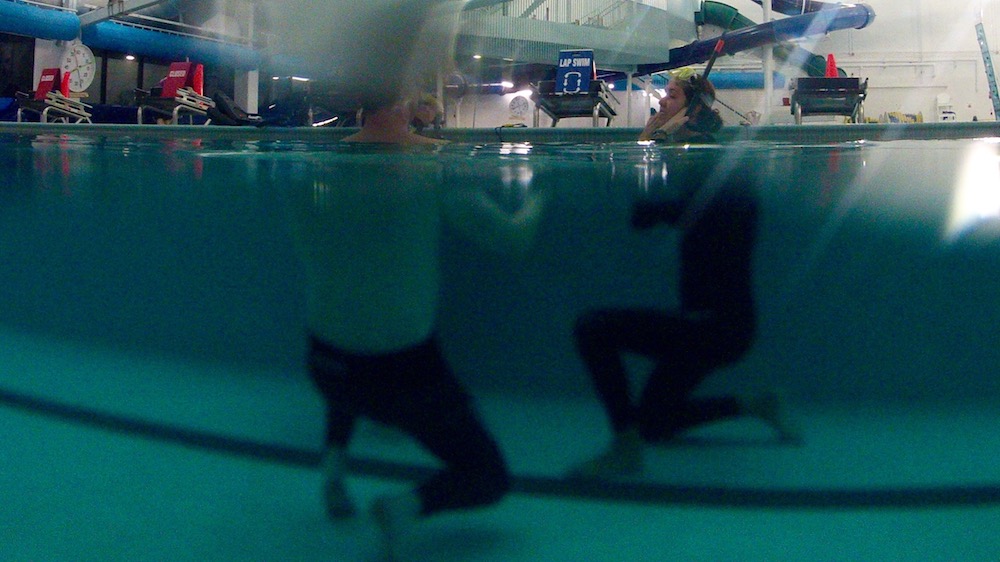
caption
Madison Stewart (right) adjusts her snorkel mask at a freediving learning session in Dartmouth on March 4.Madison Stewart, dressed in a wetsuit and snorkel mask, steps into the shallow end of a pool to practise holding her breath.
For the marine biologist, standing hip-deep in warm chlorine water is a lot different than her past experiences in the ocean, but this freediving clinic brings her one step closer to diving deep without equipment.
“I wanted to learn to do it properly and see if breath-hold techniques could actually improve my breath-hold, and they did,” said Stewart.
It’s March 4 at the Zatzman Sportsplex in Dartmouth, and Stewart and three others are learning from members of the Halifax Freediving Club.
Freediving relies on special breathing techniques to go underwater and explore without the safety net of an oxygen tank or heavy equipment. It is done both recreationally and as a competitive sport, and recreational divers train so they can explore the seafloor and dive sites freely.
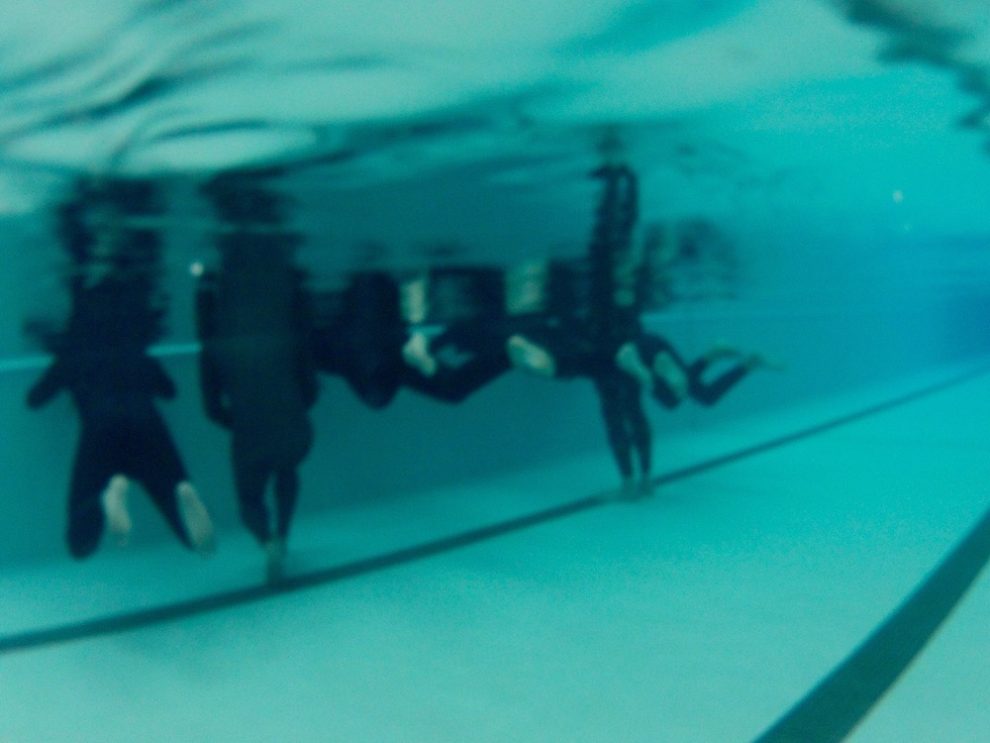
caption
Learners prepare for a breath-hold by trying to relax their bodies. Instructors Hancheng Zhu and Nicolas Winkler stand to monitor the group.Visualization is an important part of the breath-hold process for a freediver. Some techniques help to relax your entire body, while others distract your mind from any urge to breathe.
“It’s a huge mental game to cast some of those seeds of doubt aside,” said Nicolas Winkler, a freediver and club vice-president.
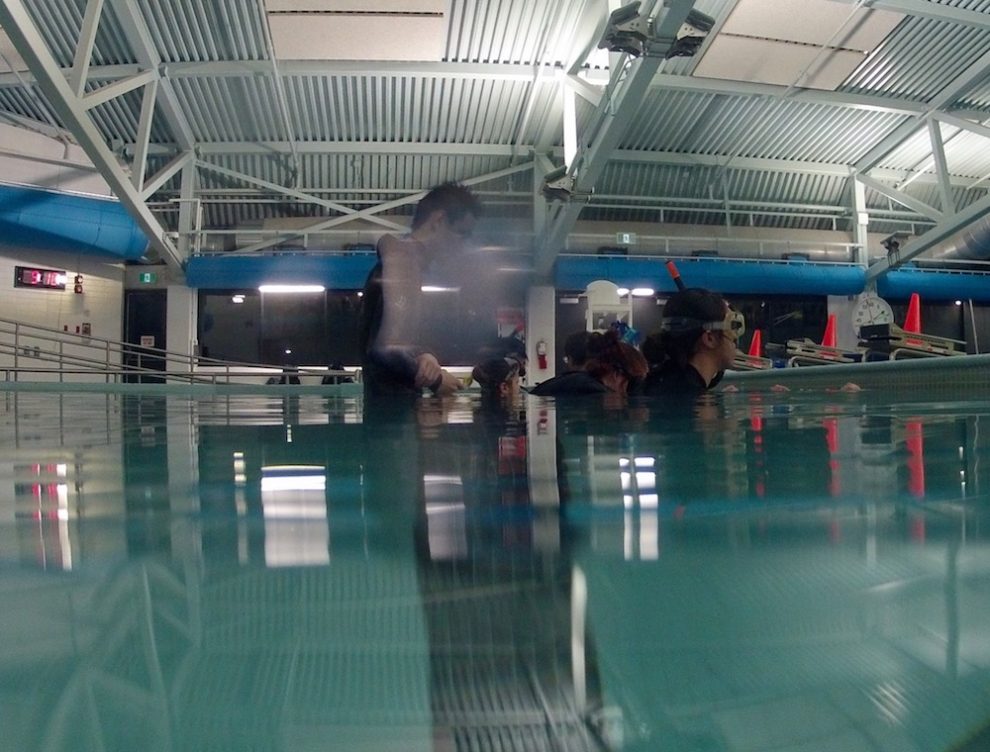
caption
Madison Stewart holds onto the pool deck in preparation for another breath-hold.In preparing for the breath-holds, Stewart holds onto the pool deck and begins a deep breathing exercise using the diaphragm, to calm and focus her breath. Once she feels relaxed enough, the stopwatch starts, and she positions herself face down in the water. She raises a finger to indicate everything’s OK.
Winkler and Hancheng Zhu, a freediving instructor and club member, stand close by to monitor everyone’s time and coach them through the relaxation techniques.
“I know I can hold my breath longer,” said Sarah Mason, a scuba diver new to freediving. “It’s just my mind and calming that anxiety.”
After practising longer breath-holds, the night ends with an ocean-themed game of rock-paper-scissors. The winner of rock-seaweed-lobster is the person who stays underwater the longest.
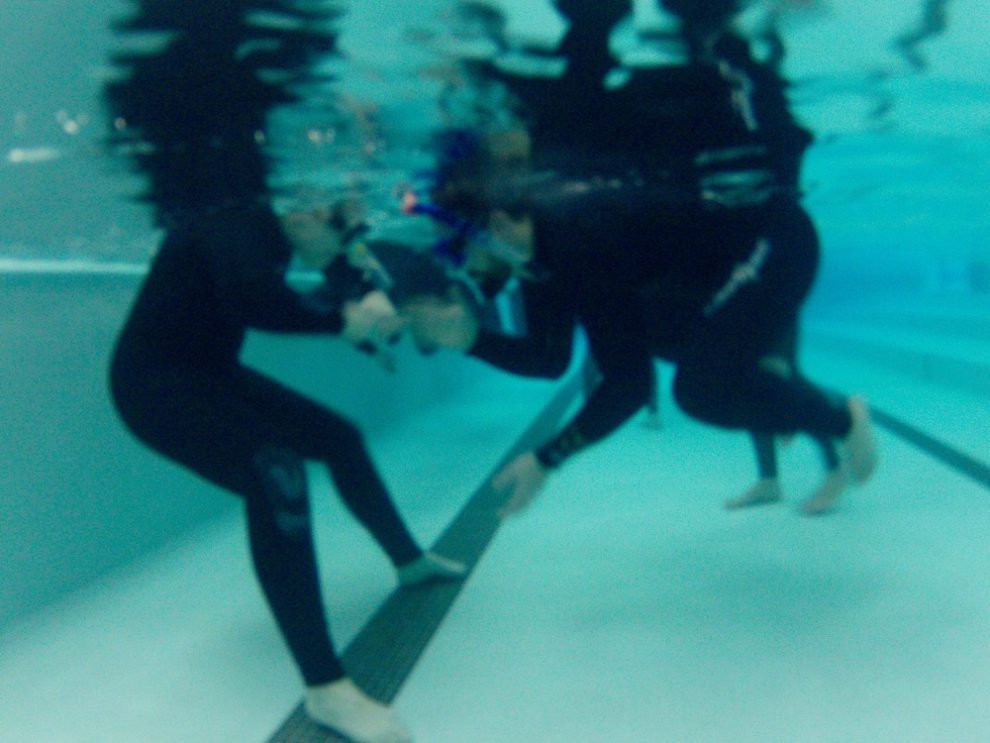
caption
Two participants challenge each other while playing rock-seaweed-lobster.The non-profit club is trying to ease any negative perceptions of freediving. Winkler said after the club was established in 2018, it was over a year before members were allowed to practise in a swimming pool.
He noted that club members must hold a certification with a recognized training agency to participate in pool activities or out in the ocean. He said the risk of blackouts or drowning is amplified if someone attempts to freedive without a buddy or certification course.
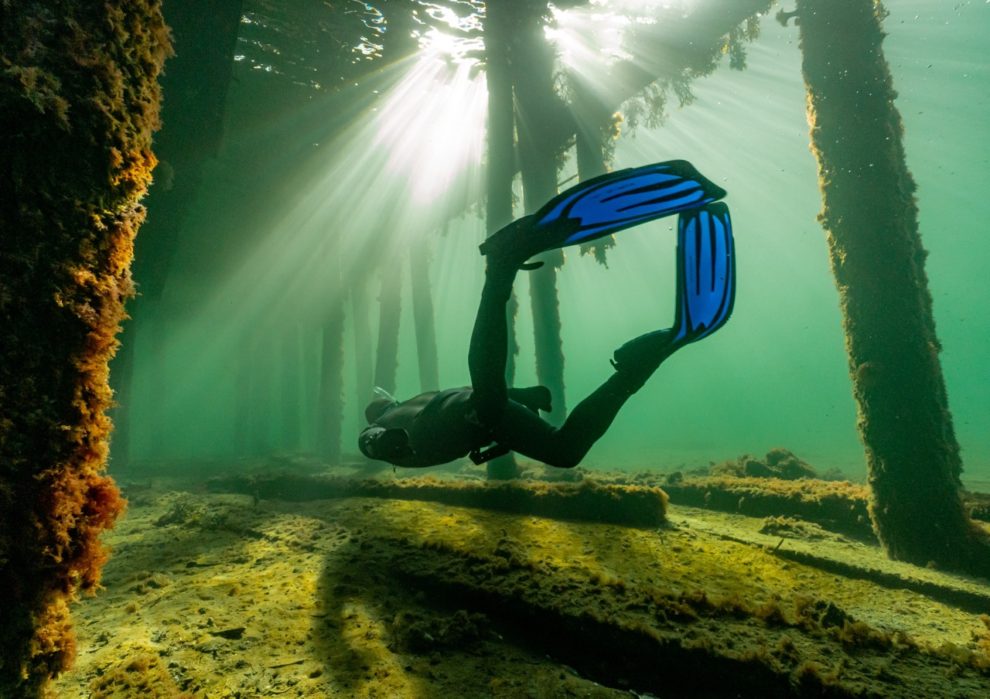
caption
A pristine shot of a freediver near Prospect Village in Nova Scotia.Despite those risks, Stewart and Mason both want to get fully certified to freedive out in the open ocean.
“I just wanted to dip my toe in, try it, and now I’m like absolutely,” said Mason. “ I’m going to sign up for the next [course].”
